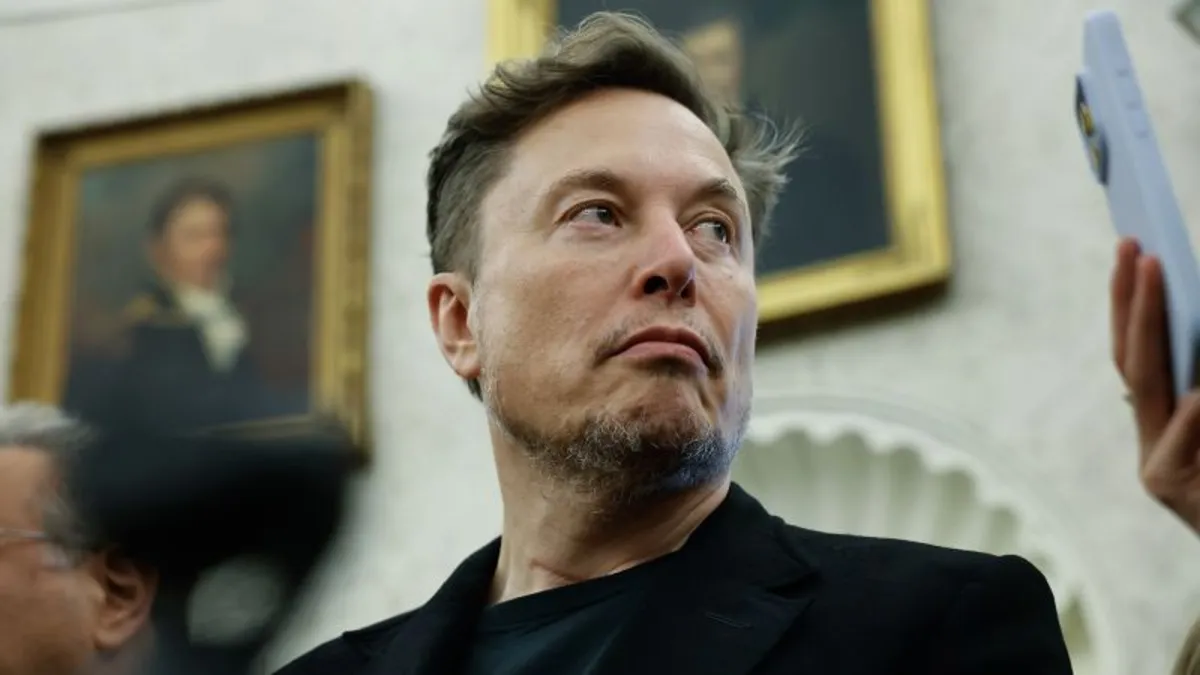
Billionaire Elon Musk has made headlines once again, this time by announcing his intention to form a third political party in the United States. This significant development comes after a dramatic falling out with former President Donald Trump, indicating that Musk is ready to follow through on threats he previously made regarding Trump's domestic policy bill.
In a recent post on his social media platform, X, Musk stated, “When it comes to bankrupting our country with waste & graft, we live in a one-party system, not a democracy.” He declared the formation of the America Party, aiming to “give you back your freedom.” This announcement marks a pivotal moment in Musk's political journey, as he was previously the largest individual donor to Trump's 2024 presidential campaign and a close adviser during Trump's administration.
Musk's shift away from Trump appears to be fueled by his criticism of the former president's “big beautiful bill,” which he believes could add trillions to the federal deficit. This criticism sparked a major fallout between Musk and Trump last month. Although their relationship seemed to improve when Musk expressed regret and deleted some controversial posts about Trump, tensions resurfaced as the domestic policy bill neared passage. Following Trump's signing of the bill into law on Friday, the rift between the two has widened.
As of now, it remains unclear what legal steps Musk has taken to establish the America Party, which would need to register with the Federal Election Commission (FEC). Recent FEC filings show no indication that such registration has occurred. Musk envisions a party that is fiscally conservative and focused on curbing government spending, although he has not disclosed specific details regarding the party's broader platform.
While both Musk and Trump share similar views on various contemporary social issues, Musk has criticized the Republican policy agenda for potentially exacerbating national debt, which he has referred to as “debt slavery.” This divergence in opinion highlights the complexities of their relationship and Musk's evolving political stance.
The two-party system in the United States has faced longstanding criticism from both Democrats and Republicans. However, historical attempts to create a third party have largely been unsuccessful. For instance, billionaire Ross Perot ran as an independent candidate in the 1992 presidential election, garnering nearly 20% of the popular vote but failing to win any states.
Experts in campaign finance and political science warn that establishing a new political party is fraught with financial and legal challenges, making it difficult for voters and candidates to join. Despite these obstacles, Musk has stated that the America Party will emerge as an active political force in the upcoming midterm elections, initially focusing on supporting candidates in select House and Senate races.
In response to Musk's announcements, Trump has issued threats regarding potential repercussions for Musk's companies, hinting that the government may reevaluate its significant contracts with them. He described the Department of Government Efficiency, which Musk previously headed, as a “monster” that might “go back and eat Elon.” This statement underscores the contentious nature of their relationship and the stakes involved as Musk ventures into the political arena.
As the situation continues to develop, the political landscape may see significant changes with Musk's new party, leaving many to speculate on its impact on both the Republican Party and the broader American political system.